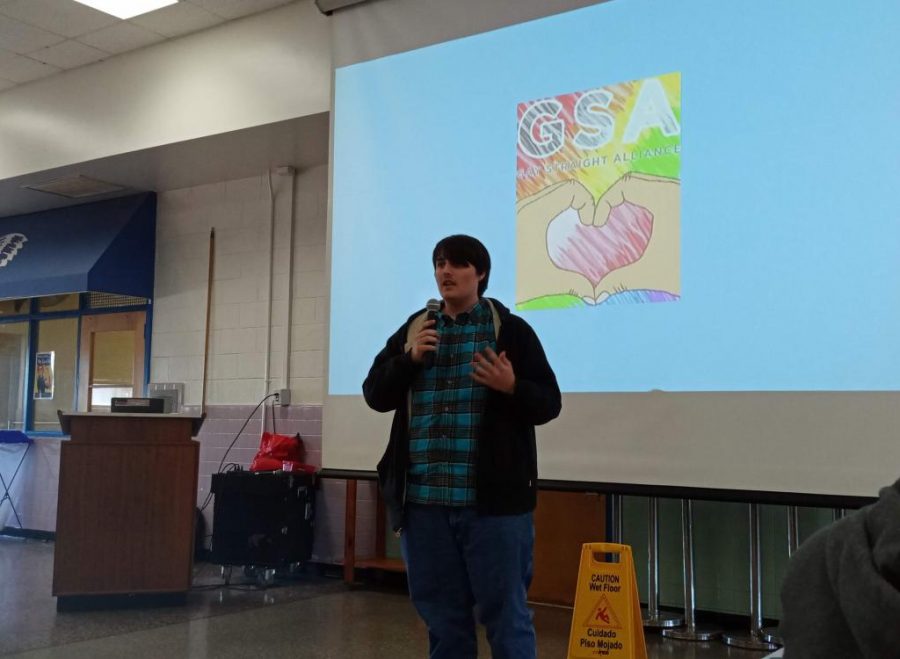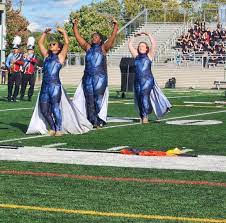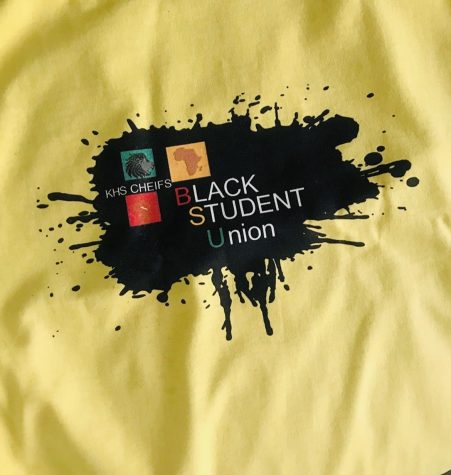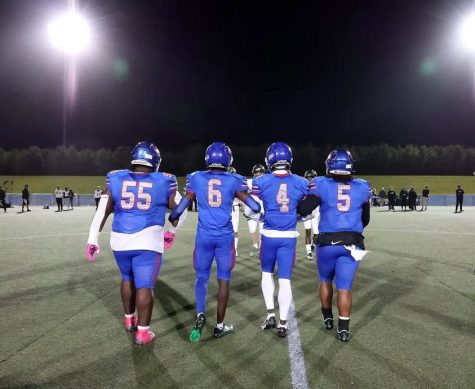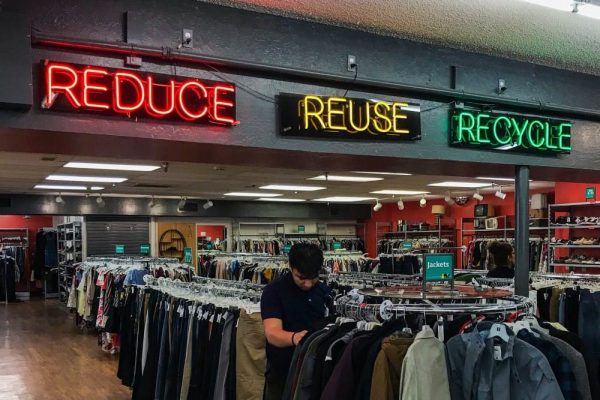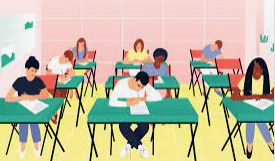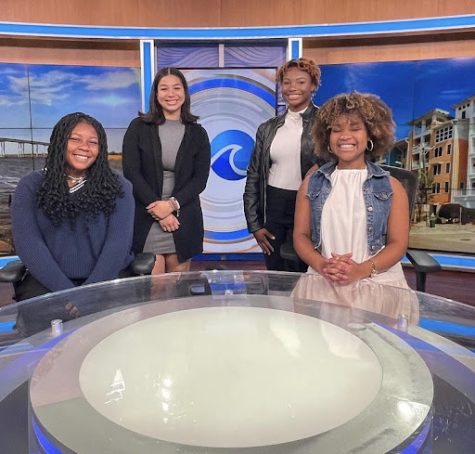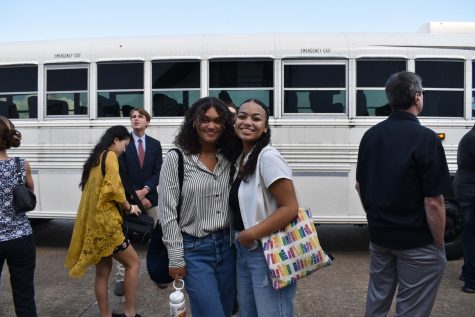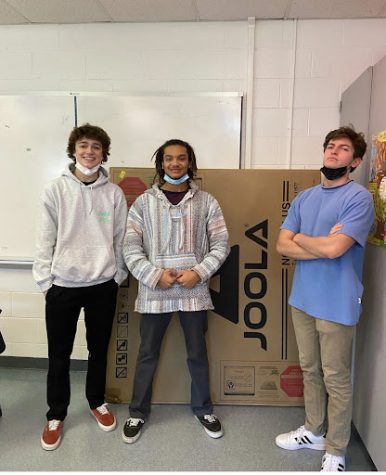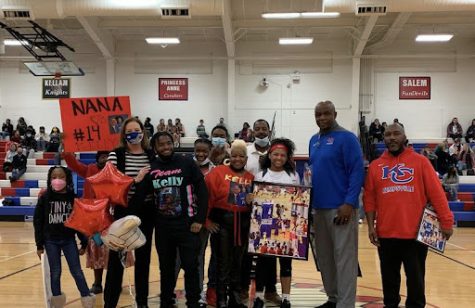GSA Explains More Inclusive Classroom Practices at Faculty Meeting
James Hanan, co-president of the GSA, explains the importance of derailing examples of the nuclear family in the classroom.
Kempsville High School’s Gay Straight Alliance, or GSA, spoke to teachers for the second year in a row at the faculty meeting on January 6.
Principal George opened the meeting and introduced the club, saying: “I think that it really is about bringing more awareness. I’m sure that any time you see one of the students in the hallway if you have additional questions don’t be afraid to ask, don’t be afraid to, you know, talk to students to get more information because it is something that we all need to be aware of and that we all need to have a greater understanding of.”
Last year was the first time the GSA had presented to teachers, and they focused on awareness, going through definitions and explaining how teachers can make their classroom more inviting to LGBTQ+ students. This year they counseled teachers on how to make their classrooms more inclusive, giving examples of how teachers could better appeal to more diverse student lives.
“We all know what the nuclear family is, right?” asked co-president James Hanan, who opened the meeting. “One dad, one mom, one boy, one girl, and a little dog named Fido, probably a German Shepherd or golden retriever. That’s what the nuclear family is. When teachers use examples in class to help students understand something, they tend to make those examples set into the nuclear family. And for students who don’t have that nuclear family, it can be harmful. When the norm is white, middle class, one mom, one dad, and one sibling with a dog, and you don’t fit any of that, it can be really hurtful. It can make you think ‘oh, I don’t fit what the example is, so maybe I don’t fit.’”
Hanan also told about his experience in PE that juxtapositioned the one he told last year, when he spoke about a teacher who had handled derogatory terms well.
“I may not look it, but I actually really enjoyed PE,” Hanan said. “Some of my best memories were playing badminton with my friends, coming up with inside jokes – all the stuff typical high schoolers do. What I didn’t like was the locker room. Eyes straight. Don’t look right, don’t look left, don’t look up, don’t look down, don’t talk to anyone. That is what I had trained myself to do since the 6th grade. I was afraid that because of my sexuality, if I even looked, if I glanced for even a second at another person in the locker room, I would get bullied. I would get yelled at. I would get hit. I was terrified to be in those locker rooms.”
Hanan spoke to his PE teacher and the slurs stopped for a week, but then everything went “back to normal,” even after he asked the teacher to do something again.
“To this day I’m still terrified to go into those locker rooms. And to this day, I’m still terrified to go into any public locker rooms,” he said. “I can’t even go to the public gym without feeling afraid I’m going to see one of them, and they’re going to attack me or hurt me or something. That is why I feel like having an inclusive classroom is such an important thing. I don’t want there to be any other students that have to be afraid in their own classrooms.”
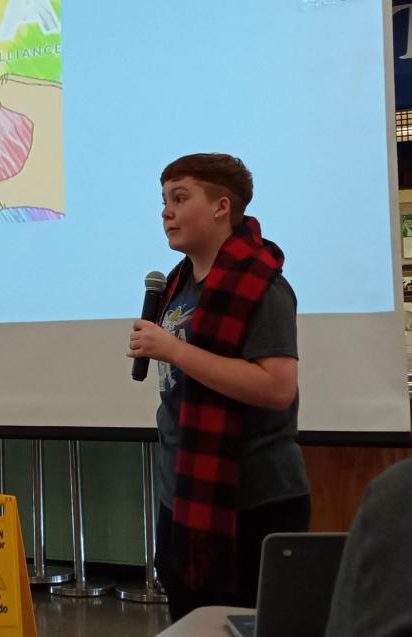
Jack Shupe, club member, shares his story.
“Something that I find a little confining is ‘boys and girls,’ ‘ladies and gentleman,’ ‘females and males,’ said club member Jack Shupe, who also spoke. “With things like that, there is so much in between there. And there’s some people who maybe want to express themselves differently and it’s important not to block out those students.” He went on to encourage teachers to use gender-neutral terms like “students” to address their classes, and to not split their classes into groups by gender, but instead count kids off, or have them organized by similar interests, describing grouping possibilities as “endless.”
“The possibilities are really endless. And it’s just kind of outdated to split by ‘boys over here, girls over here’.”
At the end of the meeting Hanan spoke again, encouraging faculty to be patient with students.
“High school is the biggest transitional period of our lives. The person who we enter high school as is not the person we leave as. I can say that; I’ve started here at Kempsville and I’ve ended here a completely different person. And we go through a lot. And we’re looking for someone to help us. So when we come to you, it might just be a shot in the dark. Not to mention if a student knows that they have at least one person in their corner, that will lower the percentage of suicide by 52%. It halves it. And that is incredibly important. It may be the 100th or thousandth time you’ve had to deal with a student coming to you with something you’ve dealt with before that you don’t want to deal with again. But to us, having your support, and having you there for us is the most important factor.”
GSA meets the first and third Monday of every month during lunch, and the first and third Wednesday of every month after school in room 106. They are open to everyone.
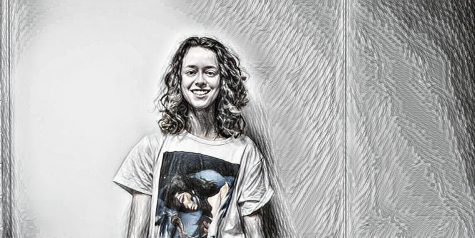
Sydney Haulenbeek is a senior and a fourth-year writer for The Treaty. She enjoys researching and analyzing nonsense, wasting time on Twitter, and working...



